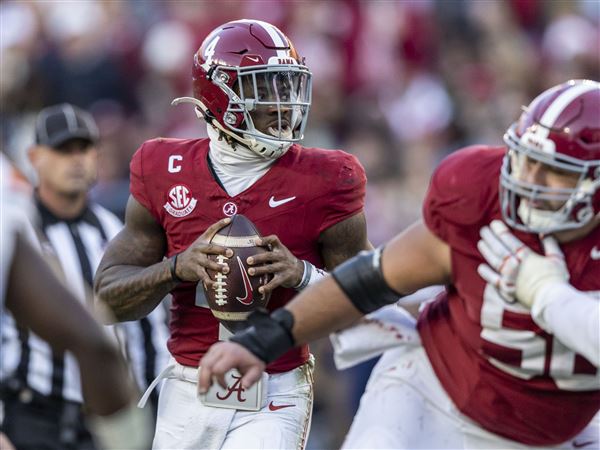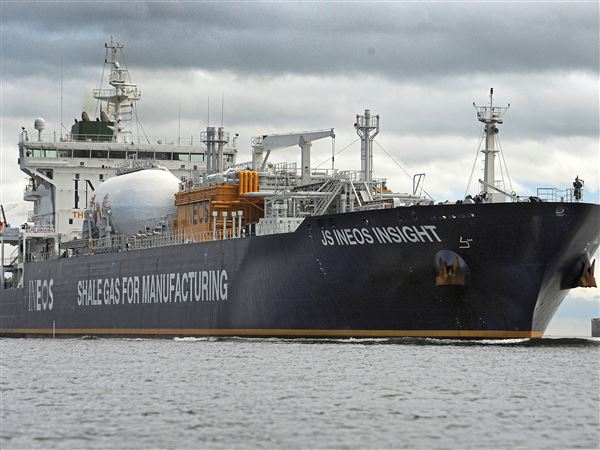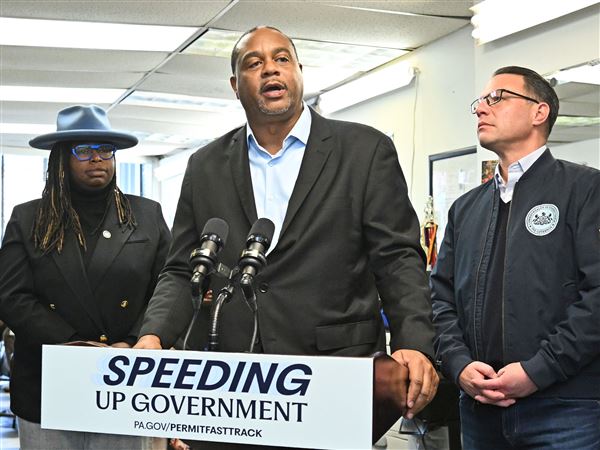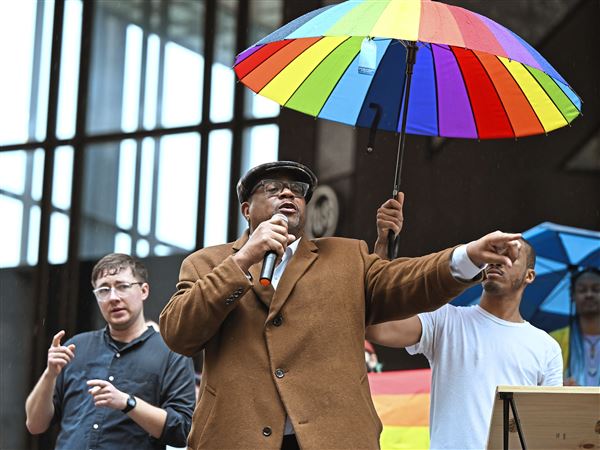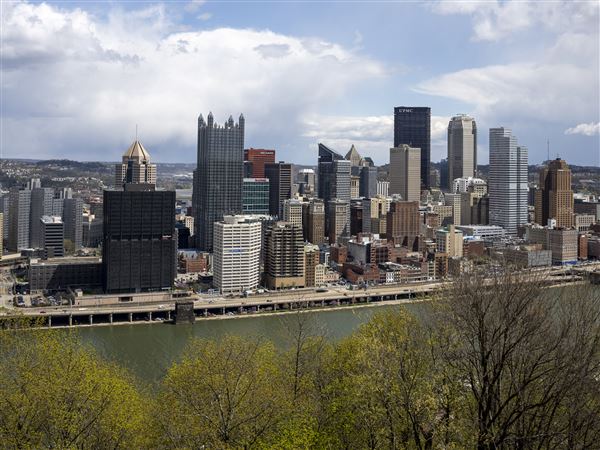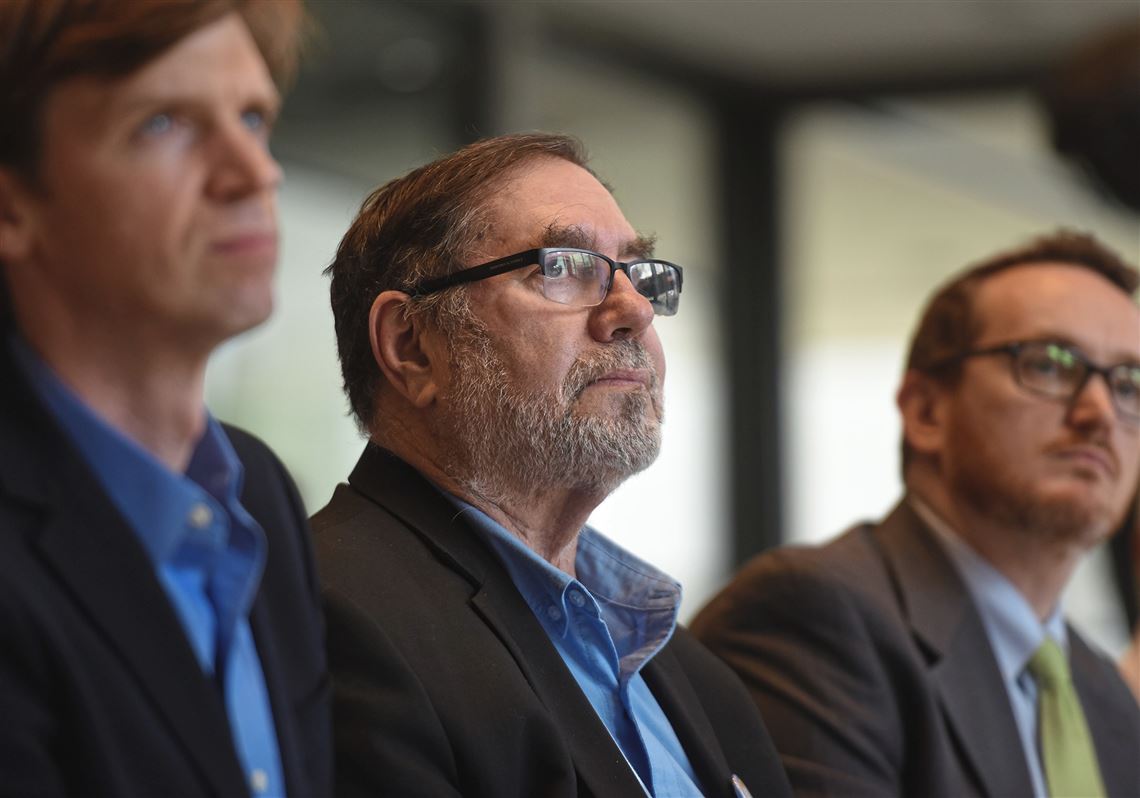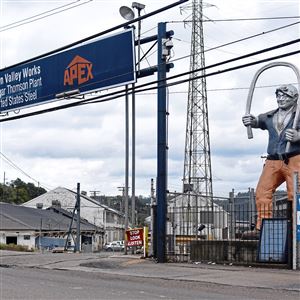Leo Gerard let a silence linger unusually long for a union leader who seems rarely short on words.
The international president of the United Steelworkers was surrounded by memorabilia collected over decades, ready to be boxed up and shipped out of his Downtown office. His television had been blaring MSNBC political analysis of more than 20 Democratic presidential candidates.
Finally, he said, “It’s a question that causes a fight between your gut and your brain.”
Mr. Gerard was mulling over whether he was surprised when Donald Trump won the 2016 presidential election. It’s standard self-reflection for virtually anyone who touches national politics these days. But for Mr. Gerard, whose union’s membership helped drive Mr. Trump’s win, the question was still perplexing.
As Mr. Gerard, 72, retires Monday after four decades climbing the ranks of the largest private-sector labor union in North America, his legacy will be defined by leading with his gut and his brain, according to interviews with those who know him well.
As a politically savvy ferocious negotiator and studious follower of economic trends, he battled unfair trade deals along the way. In doing so, he broadened the United Steelworkers’ reach to a global scale as many unions struggled to keep up with multinational companies.
Yet the 2016 election underscored a fight unfinished. Mr. Trump’s promises to revive American manufacturing by rewriting trade deals were straight from Mr. Gerard’s pulpit. The messages fractured the United Steelworkers, a working-class stronghold usually loyal to Democrats. The United Steelworkers endorsed Mr. Trump’s opponent, Hillary Clinton.
“Trump saw the opportunity,” Mr. Gerard acknowledged in an interview in June. “When you go through the heartland ... that’s the group of people who have been lied to three or four times” by previous U.S. presidents, he said.
“And so when the election came,” he said, the members thought, “Well, they didn’t do it for us, they didn’t do it for us, they didn’t do it for us — you might as well take a shot with this guy.
“Trump basically told the members what we had been telling the members,” he said.
As Mr. Gerard retires, he leaves the 77-year-old United Steelworkers at a critical juncture. The political climate surrounding organized labor could be the most fraught in a generation, with a renewed uprising against unfair trade practices and distrust of political institutions. While Mr. Gerard expressed disgust for Mr. Trump and the Republicans who support him, many rank-and-file workers see the president as helping the industry.
Meanwhile, the union, with its 1.2 million members in the United States and Canada, is growing younger and more diverse, expanding to organize workers in different professions in colleges, casinos and health care facilities.
The United Steelworkers’ leadership transition could offer a glimpse into the next era of the American labor movement.
Tom Conway, who will take over as international president after 14 years as an international vice president, said he plans to encourage younger members to move up through the ranks.
The union is strong in many ways, he said, noting the strike fund was healthy and that recent bargaining sessions with U.S. Steel and ArcelorMittal yielded favorable contracts. But trade issues have divided many members, he said, after the Trump administration imposed tariffs on Chinese imports — a move the union had been pushing for decades.
“Our union is very much a snapshot of the country,” Mr. Conway said. “We have members who think Trump was helpful on the tariffs, and we have members who despise Trump.”
He recently saw a letter the USW sent to Congress in 1991, urging lawmakers to protect American jobs against trade deals with other countries.
“You could change the date on this letter and it’s like nothing has happened,” Mr. Conway said. “The country never dealt with it.”
A young guy with a big mouth
Mr. Gerard grew up surrounded by a sprawling complex of metal mines in Sudbury, Ontario, about a four-hour drive north of Toronto. Organized labor was embedded with everyday life — and the union and company management were almost always antithetical forces.
“We lived in the company’s house. My dad shopped at the company’s store for his mining equipment. The superintendent of the school board was superintendent of the mines,” Mr. Gerard explained.
Workers lived on one side of a highway, and managers lived on the other. At the first snowfall, managers and union members would play an annual flag football game. But the flags were sometimes treated as a formality, and the games got physical. “Someone smashed my head into the frozen dirt,” he said, recalling his first broken nose. “But that was the way it was.”
As young as 11 years old, he began distributing union flyers with his father, Wilfred Gerard, a nickel miner and organizer with the International Mine Mill and Smelter Workers’ Union. The union represented 17,000 workers, and, when the four existing union halls filled up, the Gerard family’s basement served as a meeting space.
Other members came to respect him and saw he had a “big mouth,” as Mr. Gerard put it. But he initially resisted more responsibility in favor of academic pursuits. He wanted to teach economics. He took a demotion to yard laborer so he could take night classes at Laurentian University.
It was in those studies that Mr. Gerard realized the corporate world was globalizing while the labor movement was regionalizing, “and if we didn’t move quickly, we were going to be run over by the globalists,” he said.
At that point, his gut and his brain told him the same thing: build union power for workers.
He took a shop steward position at 20. He relished the chance to use tactics like using the contract’s grievance language to pester managers who were hostile to union demands. “Every time they blinked, I filed a grievance,” he said, boasting that he ousted three managers that way.
Mr. Gerard then got a job offer at the United Steelworkers district office in Toronto, an opening that came from Lynn Williams, the USW’s international president at that time and the union’s first Canadian leader.
Older colleagues in the Toronto office called him “Lynn’s boy” and tested him, Mr. Gerard said, by assigning him to the toughest group of 18 local unions. Some units were just days away from bargaining a new contract. “That was actually one of my best learning experiences,” Mr. Gerard said.
Building coalitions
When Mr. Gerard reached Pittsburgh in 1993 as international secretary-treasurer, the free trade movement was at a peak.
The North American Free Trade Agreement took effect in January 1994 over the protests of labor unions and environmental groups who argued the pact would lead to widespread job losses. The corporate narrative on free trade had won out, and it still makes Mr. Gerard seethe.
“NAFTA is a corporate lie,” he said recently. “The economy has been designed to benefit multinational companies at the expense of the rest of us.”
Mr. Trump’s tariffs, which tax foreign-produced goods and raise costs for U.S. importers, are not enough to undo the damage, he said. The entire trade system must be rewritten, he said, so workers can challenge unfair trade practices.
He places much of the blame on Democrats — it was a Democrat, President Bill Clinton, who signed NAFTA into law, helped establish the World Trade Organization and lifted a ban on corporate stock buybacks — for failing to stand up for the working class. Mr. Clinton was “gutless,” he said, though he considered Hillary Clinton more compassionate to workers’ issues. “We could never get a strong opposition on trade from the Democrats.”
With little help from politicians, Mr. Gerard turned to the power of coalitions to not only prevent the erosion of union power but also to expand it.
In 2008, the USW merged with the largest private sector union in the United Kingdom and Ireland to form Workers Uniting, a trans-Atlantic trade union with 3 million members. He created the Strategic Campaigns Department to forge partnerships with workers in countries including Australia, South Africa, Mexico and Brazil.
In 2006, Mr. Gerard spearheaded the BlueGreen Alliance, joining labor and environmental groups that push for green-friendly regulations that also create and keep blue-collar jobs. In the interview, Mr. Gerard said that alliance was probably his proudest accomplishment.
“He may not be your stereotypical tree-hugger — I don’t think you’ll see him wearing Birkenstocks,” said Michael Brune, executive director of the Sierra Club.
Mr. Gerard was ahead of his time in realizing the political potential of merging complex problems like income inequality and climate change, Mr. Brune said. “The intersection between environmental groups and unions is maybe the most important partnership in American politics today,” he said.
The group recently won the passage in California of its “Buy Clean” policy, which promotes requiring infrastructure projects to use materials that are manufactured in a climate-friendly manner. Washington, Oregon and Minnesota are considering similar legislation. In June, the organization unveiled its “Solidarity for Climate Action” plan in the lobby of the United Steelworkers building.
Ed Broadbent, founder of Canada’s New Democratic Party and a liberal advocate, published a letter in the Toronto Star in June calling Mr. Gerard “the most influential Canadian that most Canadians have never heard of.”
Punching above his weight
Mr. Gerard, who is soft-spoken in interviews and has never lost his Canadian lilt, is known for aggressively lobbying in Washington. He often brought members with him, building the USW into a political powerhouse. The union mobilizes members to testify on Capitol Hill, write to lawmakers and score interviews with national news media.
“We have a formidable capacity to intercede with members of Congress, and a lot of times we win,” Mr. Gerard said in the interview.
Rep. Pete Visclosky, a Democrat from Indiana who chaired the Congressional Steel Caucus until January, said Mr. Gerard paid attention to the details and “understood the subtleties of legislation.” The Trump administration, he added, would have never pursued import tariffs “had it not been for the work of Leo and the United Steelworkers.”
His access, which Mr. Gerard credited to the union, culminated with former President Barack Obama and Vice President Joe Biden. Mr. Gerard pointed out a picture of himself with the two men. “Love ya Leo,” Mr. Obama scrawled on the photo. “Keep the faith,” wrote Mr. Biden.
Mr. Biden is now leading a crowded Democratic primary field ahead of the 2020 election and has sought endorsements from the labor community in Pittsburgh. (Mr. Gerard declined to give his personal endorsement to any candidate.)
The USW’s endorsement process will be an early test for Mr. Conway, who said the union would double down on its political advocacy. All Democratic candidates, he said, need to wake up to trade issues.
“You can’t ignore that trade hurts a lot of people in this country,” Mr. Conway said. “You have to get back those votes by fixing this problem.”
Mr. Gerard said he plans to split time in retirement between his house in Cranberry and a cabin near Sudbury. He wants to attend more of his grandson’s go-kart races and get his fishing boat in the water with his sons-in-law.
He will keep an eye on the broader picture.
“I’ve never, ever — even today — thought there’s nothing we can do about it,” Mr. Gerard said. “If we weren’t there, think how much worse it would be.
“We will win because we are right,” he said.
Daniel Moore: dmoore@post-gazette.com, Twitter @PGdanielmoore.
First Published: July 15, 2019, 12:00 p.m.
